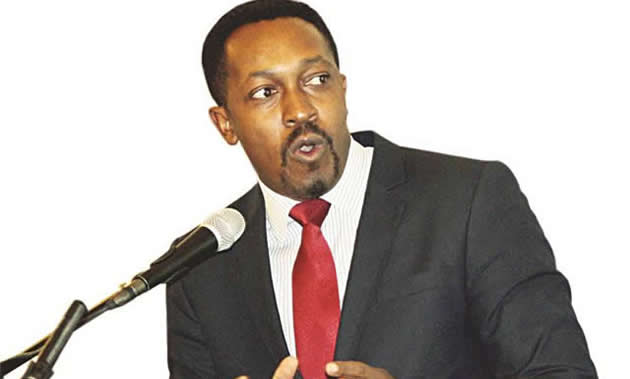
The Sunday News

 A HIGH-POWERED Chinese business delegation visited Bulawayo last week as part of Government’s efforts of exposing potential investors to various business opportunities in the second capital which has been identified as a Special Economic Zone on leather and textiles.
A HIGH-POWERED Chinese business delegation visited Bulawayo last week as part of Government’s efforts of exposing potential investors to various business opportunities in the second capital which has been identified as a Special Economic Zone on leather and textiles.
The Chinese business executives delegation, which was being led by Mr Liu Jianxing and accompanied by the permanent secretary for Corporate Governance, State Enterprises and Delivery Unit in the Office of the President and Cabinet, Mr Stuart Comberbach toured Archer Clothing, Cold Storage Company and its subsidiary Wet Blue Industries, National Railways of Zimbabwe, Zimplow and one of the city’s biggest retail and wholesale outlets, Fazak.
Mr Comberbach said the visit by the Chinese to Bulawayo was facilitated to enable the Asian country’s business executives to explore various investment opportunities available in the country’s second largest city.
He said Bulawayo was once the country and Sub-Saharan Africa’s industrial hub further stating that the city was poised to retain its status due to its location and availability of infrastructure.
“I think there have been three areas that have been identified as potential Special Economic Zones special clusters here in Matabeleland and these are cotton to clothing, beef to leather, foundries to steel. It hasn’t been finally decided but we just wanted to expose them to some potential investment opportunities,” Mr Comberbach said.
He said the country stood to benefit immensely through its bilateral relationship with China.
“It’s a relationship which is ongoing and developing all the time and the more we exchange visits like this, the more they (Chinese) begin to appreciate the diversity which is here in terms of opportunities for both state enterprises and also the private sector in China. So this is the sort of thing we are looking at, to try and advance as this relationship continues to develop,” Mr Comberbach said.
Mr Jianxing said there were a lot of investment opportunities in the city’s textile and locomotive sector, which the Chinese companies could explore.
“We are very impressed with the infrastructure we saw here although some of it needs to be technologically advanced. We strongly believe that Bulawayo has the potential to grow if its infrastructure is effectively utilised. We are also looking forward to foster trade relations in the textile and leather sector as these have a ready market in China,” he said.
Confederation of Zimbabwe Industries president Mr Busisa Moyo said there was a need to foster alliances with the Chinese business executive to enable them to support the city’s industries.
“We would like to see some partnerships emerging. The partnerships should take the format of supporting the value chains that we have identified here in Bulawayo. There are four value chains — the cotton to clothing, beef to leather, iron ore to steel billet value chain and lately today we also highlighted the presence of the wood to furniture, which has export potential and we would like to talk to them about how they can support those four value chains ahead of the declaration of Bulawayo as a Special Economic Zone,” he said.
Mr Moyo said China boasted of one of the most successful Special Economic Zones models in Tianshan whose Gross Domestic Product was estimated to be over $1 billion.
“We think we can learn from them as we develop these value chains and resuscitate the economy, bringing employment to the city of Bulawayo and economic turnaround of Zimbabwe. We would like to see some of those models coming to Bulawayo.
“We have the infrastructure, the people and the location — we are sitting on the Trans-Zambezi-Limpopo corridor. So we want to take advantage of this to produce goods for the Asian market and to the northern market-Zambia, Democratic Republic of Congo and so on,” he said.
The CZI president however, said the country’s Special Economic Zones models should be home-grown so as to ensure its sustainability.
“I think we must remain the proprietors of the development plan and how we want to develop, which has been the challenge in the past, in that we developed based on others’ models.
“I think we need to own a home grown model that we understand, we can make adjustments to fit in and plug into regional and global value chains, that’s how we would like to approach it,” Mr Moyo said.



